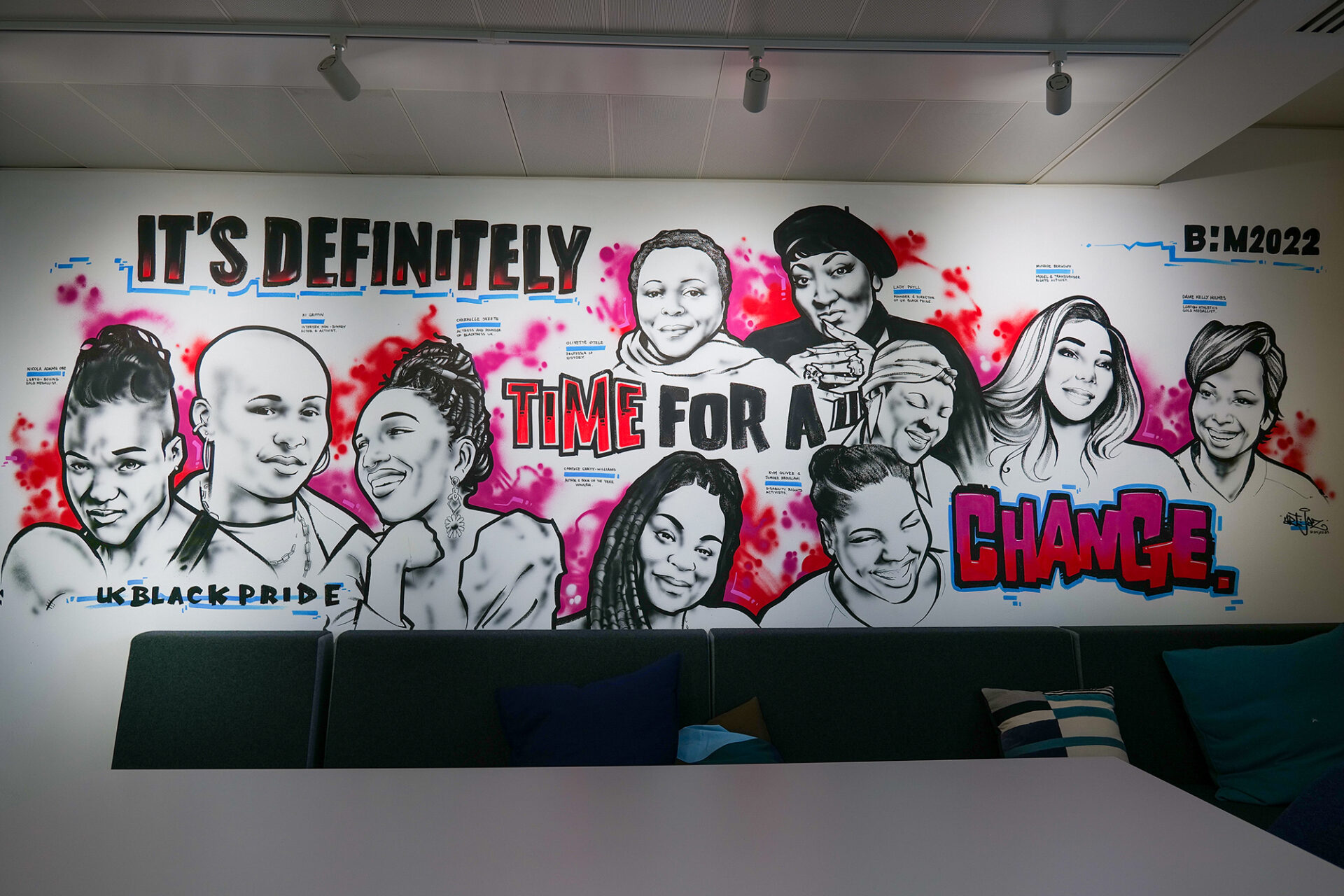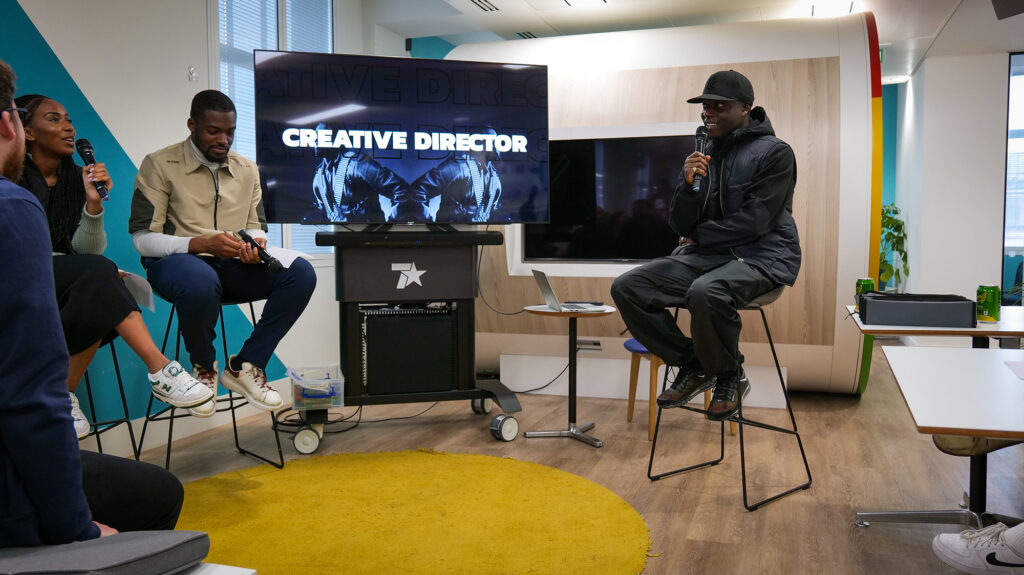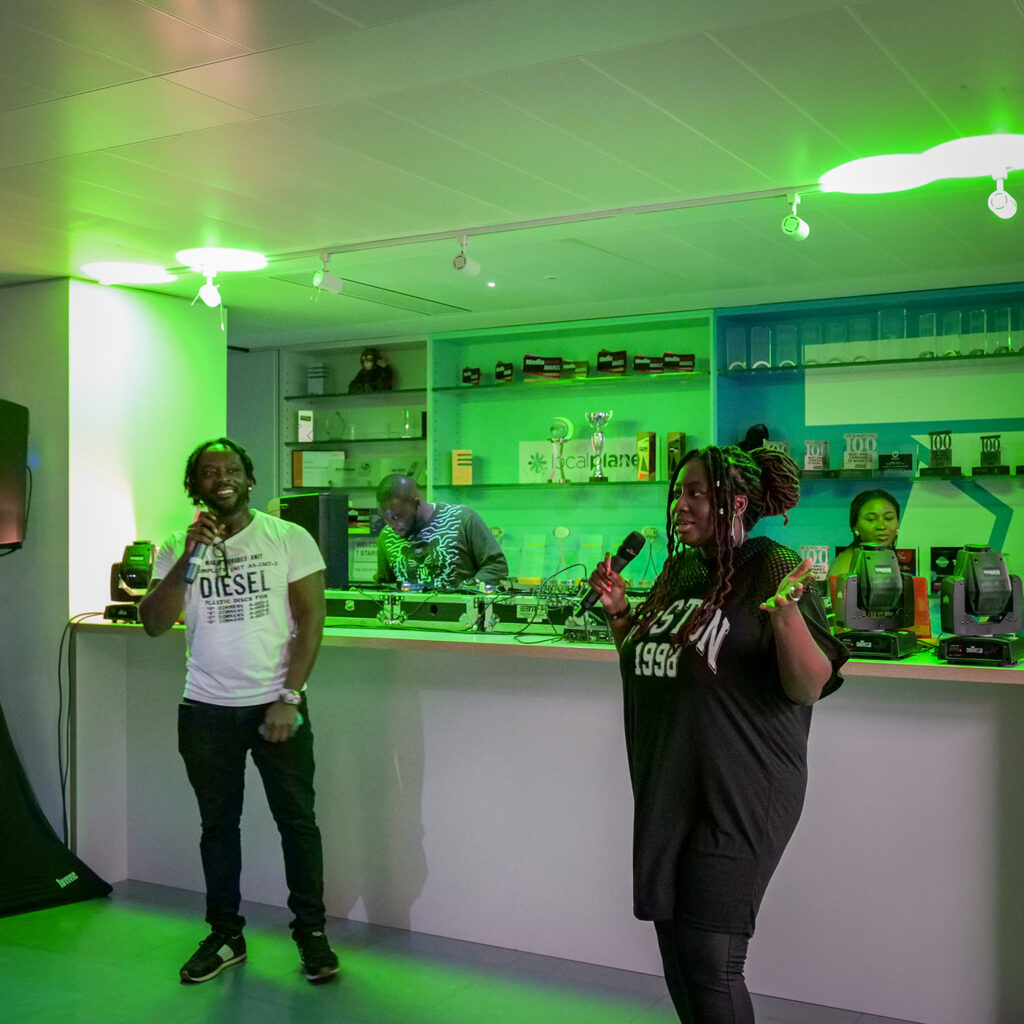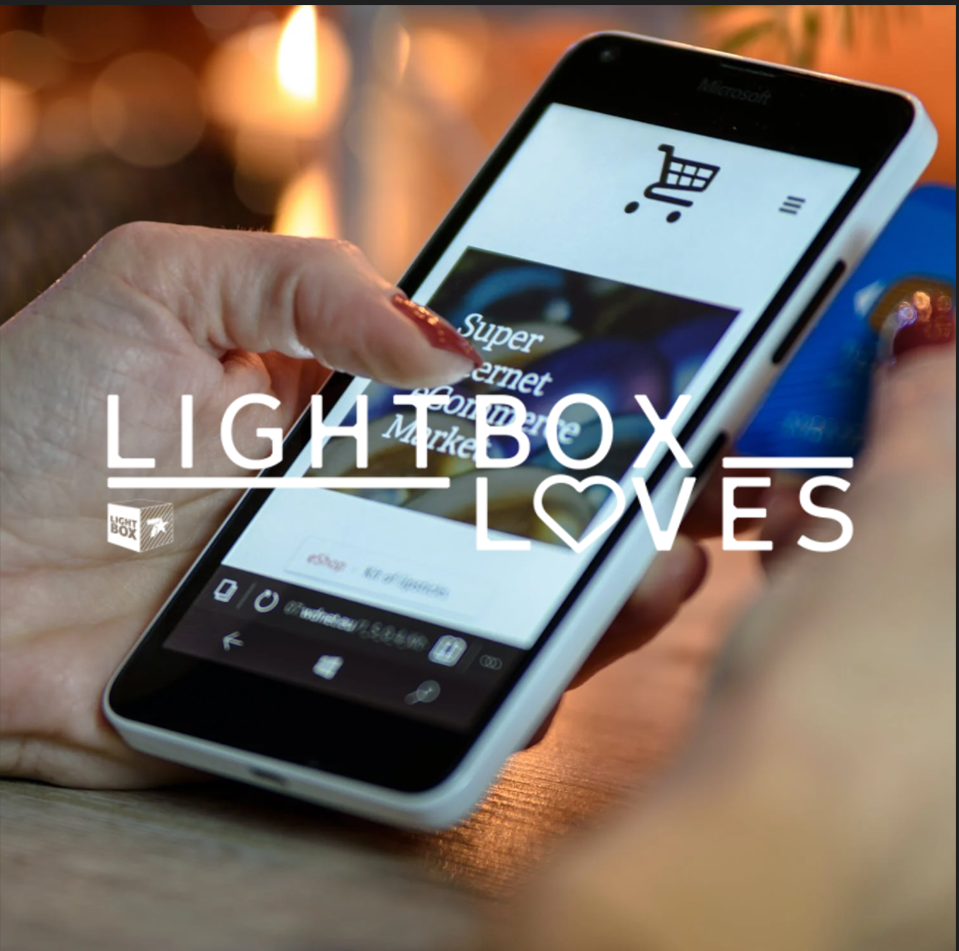
Following on from last year’s amazing celebration of Black History Month, we were excited to go even bigger and better with our celebrations this year.
Our Inspiration for this Year
Our celebrations were inspired by and centered around the words on the amazing mural in our reception area (created by Julian ArtJaz) with the theme of “Time for Change: Actions not Words”. With that spirit behind us, we decided it was time to hear from voices within the Black community about their experiences and the challenges they faced in both their personal and professional lives, whilst also celebrating Black culture and history throughout this culturally significant time. One of the big inspirations for this year was the belief we hold that Black history should not only be commemorated in the month of October but all year round; we believe that Black history does not stop being important when the month ends.
How We Celebrated at the7stars
We hosted several incredible talks, training sessions, and events in the agency (along with some tasty food!) to provide our team with insight and moments of learning that we could all enjoy and take something away from.
The was kicked off with an amazing talk from acclaimed Director and Creative Commissioner Nathan James Tettey, hosted by our own Isaac and Malique. Nathan shared his inspiring story and detailed how he made his way into the profession of directing music videos, working with some of the biggest stars in music, from Dave to Stormzy and many more. With quick wit and turn of phrase, Nathan revealed the highs and lows of his life and career, his upbringing, and more with poise and panache.

We kicked off our Black History Month celebrations with an amazing talk from acclaimed Director and Creative Commissioner Nathan James Tettey, hosted by our own Isaac and Malique.
Following this, we hosted a pair of coaching sessions with the first session being exclusively for our Black colleagues and the second being open to all colleagues who wanted to attend and learn. This was done to provide a safe space for our Black colleagues to be empowered in being their best selves, as well as facilitating communal energy and adding value to the lives of those that attended by adding clarity around some of the things that they wanted to achieve.
Our next talk came from documentarian and former Premier League footballer Anton Ferdinand, who provided our team with invaluable insight into his experiences with racism both during and following his Football career.
To round up our Black History Month celebrations, we hosted a customary DJ battle between the heavyweight titans of the mix, with DJ Jess Mavz backing Sarps and DJ Dapstar backing Isaac. In the aftermath of the track-after-track battle, it was Team Sarps who took the crown.

To round up our Black History Month celebrations, we hosted a customary DJ battle between the heavyweight titans of the mix
The Importance of Black History Month
The commemoration of Black History Month highlighted the need to consistently battle systems of oppression that are centuries-old and built-up discrimination with events that are designed to break them down. We are dedicated to showing our team that these systems do not and should not continue onwards as they have done for centuries, whilst also providing spaces for people to learn and develop themselves in a positive and safe fashion. Finally, it is important to remember that this is not something that we should only confine to one month and put away. Black History Month is every month, as Black History and Black struggle do not end when the month ends.
Our plan is to continue onwards with uplifting our Black colleagues throughout the years, as it is time for change and our actions speak a lot louder than our words.





Recent Comments